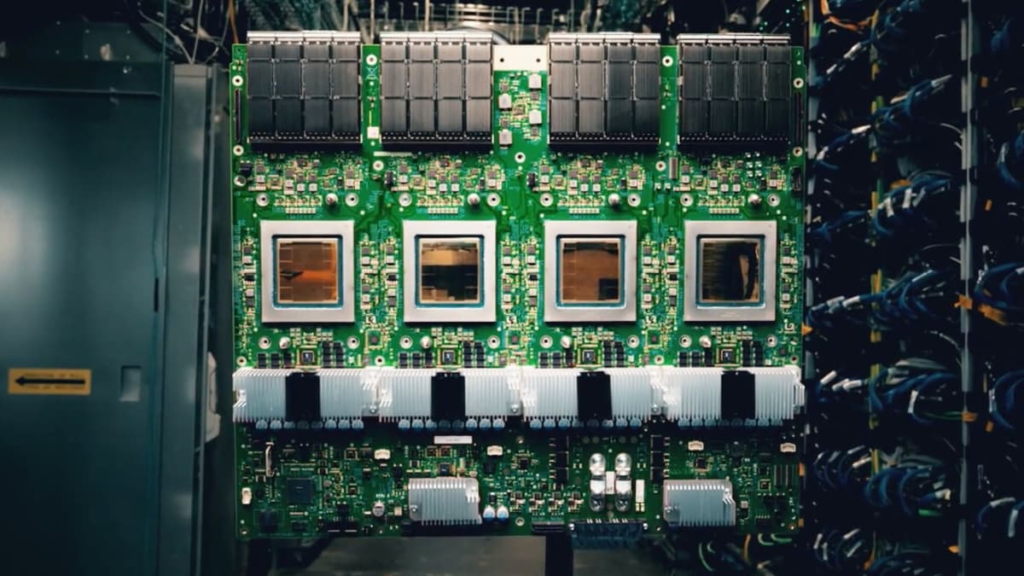Google just introduced a brand-new computer chip called Ironwood. Google designed this chip specifically to enhance the speed of artificial intelligence (AI) software applications, including chatbots, image generation tools, and language translation systems. The Ironwood component belongs to the Tensor Processing Unit family that Google developed to build special-purpose AI processing chips.
The company says Ironwood is twice as efficient as its older chips. This means it can do more work while using less energy. For example, when you ask a chatbot a question, Ironwood helps it find the answer almost instantly. This upgrade could make everyday AI tools faster and cheaper to run.

How Does Ironwood Work?
Ironwood is built to handle something called “inference.” Inference is when an AI model takes in information, like a question, and gives a response. Think of it like a chef quickly preparing a meal after reading an order. Older chips were good at training AI models (teaching them new skills), but Ironwood is better at using those skills in real-time.
The Power of Memory
One reason Ironwood is so fast is its memory. The working data storage capacity of this chip allows operations without interrupting additional information retrieval. A student solving math problems could accomplish their work without needing regular textbook flips. This makes Ironwood great for tasks like translating languages or analyzing videos.
Google also made it easy to connect thousands of Ironwood chips. This teamwork allows them to tackle huge jobs, like running AI apps for millions of people at once.
Why Ironwood Is Good for the Environment
Operating AI models demands high amounts of electricity, which leads to environmental damage. Ironwood’s energy efficiency measures have the potential to decrease the dependency of many data centers on fossil fuel energy sources.
Google reports that the Ironwood hardware requires only half the electrical power of its former generations while performing identical tasks. The prolonged use of AI models would cut down operational energy expenses while diminishing environmental emissions. For example, a company using Ironwood to power its AI tools might shrink its environmental footprint while keeping costs low.
Ironwood vs. Other AI Chips
Most companies use chips from Nvidia, a leader in AI hardware. But Google has been making its own chips for over ten years. Ironwood is its latest attempt to compete.
Why Small Businesses Should Care
Unlike Nvidia’s chips, which anyone can buy, Google’s Ironwood is only available through its cloud service. This means apps built on Google’s platform, like its Gemini AI, might run faster and smoother. However, some experts wonder if Ironwood can beat Nvidia’s newest chips, especially since Google hasn’t shared details about costs or manufacturing.

What Ironwood Means for You
Google isn’t just building chips for tech companies. Ironwood could change how regular people use AI. For example
- The speed at which apps operate increases because chatbots respond instantly without any delay.
- New tools based on picture-generation technology can produce original artwork within seconds.
- AI enables doctors to achieve better clinical results through the precise analysis of medical X-ray images.
Thousands of connected units give the chip the power to develop important projects, including natural disaster predictions and self-driving car development.
Challenges and Opportunities
The exceptional features of Ironwood must recognize that the system carries certain limitations. The company needs to persuade business entities to pick its hardware solutions over less expensive counterparts. AI needs to solve the increasing energy requirements of its operation. If Ironwood meets its stated objectives, Google might establish a leading position in the development of energy-efficient, powerful Artificial Intelligence systems.





